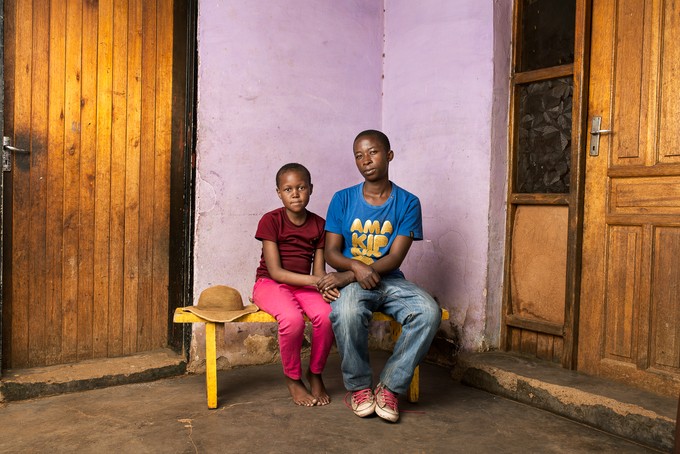
Leseli and Naleli Kompi are the children of Maphatsoe Kompi who died in October 2013 from TB at the age of 63. Their mother died in 2012. They survive off the provident fund, which their father left. The initial amount was R33,367. The silicosis court judgment brought Leseli and Naleli a step closer to receiving a just compensation from the mines. Photo: Thom Pierce, The Price of Gold.
22 September 2016
South Africa’s six biggest gold mining companies have been given leave to appeal against the court decision in May to allow mineworkers sick with silicosis and TB to bring a class action against them.
The Supreme Court of Appeal has granted the mining companies leave to appeal on all aspects of the certification by the South Gauteng High Court of the “big bang” common law class action brought by miners and former miners.
The six companies, who represent the entire industry and the Chamber of Mines in this matter, are African Rainbow Minerals, Anglo American South Africa, Anglogold Ashanti, Gold Fields, Harmony, and Sibanye Gold.
The action concerns some 250,000 to 500,000 sick mineworkers or former mineworkers and their families, spread out over the entire Southern African region.
They will now have to wait while the appeal process, which could go all the way to the Constitutional Court, is concluded.
Meanwhile the six companies have proposed a different route to settlement, outside any judicial oversight. Through the Occupational Lung Disease Working Group (OLDWG), they have suggested that if the mineworkers drop their class action suit, the gold mining industry will help the Department of Health settle the backlog of tens of thousands of existing claims under the Occupational Diseases in Mines and Works Act (ODMWA). The companies have also proposed to help identify the hundreds of thousands of people across the region who are eligible to claim compensation for illness but have not yet done so. These claims would be settled via ODMWA, with the mines offering to “top-up” individual payouts without admitting any liability.
In the long term, the gold mines are negotiating with trade unions and various government departments in a bid to rewrite the compensation laws so that in future, the ODMWA will fall away entirely, and silicosis and/or TB among gold mine workers will be dealt with under the Compensation for Occupational Diseases in Mines and Works Act (COIDA).
This would improve benefits for some sick mineworkers, and their families if they die, compared to benefits offered by ODMWA.
But the COIDA Fund is even more chaotic than the ODMWA Fund: mired in controversy over mismanagement and possible corruption, and lacking in transparency. Medical doctors are increasingly unwilling to treat injured and sick workers because the fund is failing to pay them for these services. Time lags in settling claims, even for deaths at work, are very long.
In addition, COIDA does not contain important provisions in ODMWA for mandatory heart and lung autopsies for mineworkers. The COIDA provisions for occupationally-related TB are much weaker than under ODMWA.
But COIDA is a cast iron “no fault” system of compensation, so if the mining companies’ plan succeeds there will be no further common law suits from any mineworkers - or any other workers, South African or foreign, in South Africa.